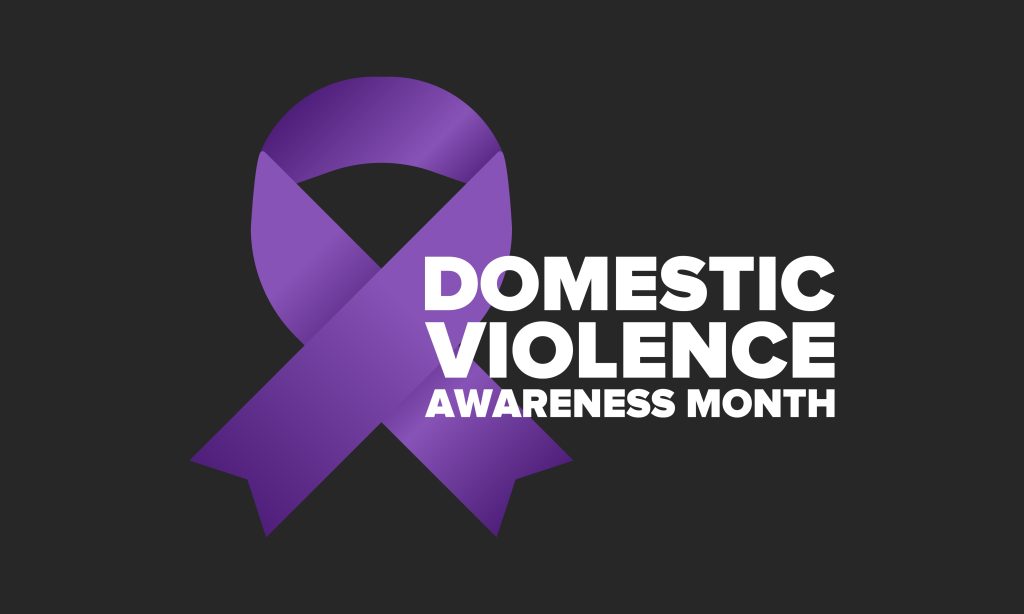The silent epidemic of male domestic violence

Why aren’t we talking about this?
According to surveys, men are less likely than women to ask for help. Men who seek help often approach the problem more directly. In contrast, many times, women will likely come and turn toward their friends and family, asking them questions on how they should act or feel about any given situation.
They give out indirect signs of abuse, not even realizing it is an issue at hand. This type of behavior by the woman only further prevents the man from getting help because he feels like no one would believe him if he said anything. Many cases like these go unreported every day.
Two critical issues need to be addressed to get a better understanding of male emotional and mental abuse. The first is why men are unwilling to seek help, and the second is why women believe they cannot be abusers.
Many men feel that no one would take them seriously if they ran to their friends, saying that the woman who claims to love them has hurt them emotionally or mentally. Another reason men are hesitant to share what has been going on in their lives is pride. They do not want anyone brushing off what has happened, saying that it was not a big deal or that it could have been worse.
For this same reason, many women can get away with abusing their spouses for years without being stopped or reported. There are many reasons why someone does not think abuse can go both ways, even when so many male emotional and mental abuse cases are now surfacing.
Many of these factors can be attributed to the traditional roles that society has placed on men and women over the years, this meaning because men are thought to be “strong,” it is not possible for them to make a man feel weak or put him down without using physical force. Another reason would be the fear of appearing homophobic many people believe if they suspect their family member or friend is gay, they will not report any abuse.
These thoughts come from false stereotypes that have been imprinted into our minds by society over time, which means there needs to be more research done to get correct statistics on this growing issue. By doing so, we can help give both male victims of emotional and mental abuse the recognition they need to get the help they deserve.
Here are some examples of how men are often victims of female domestic violence, also known as relationship abuse. This behavior can lead up to more severe forms of physical violence (Burnam, H. et al., 1988).
Throwing objects at him with intent to harm
Spitting on, Pushing, or shoving him
Slapping or hitting him while he is awake or sleeping
Yelling at him for hours on end using obscenities, demeaning him, and calling him names, you would not even call an animal because he is acting like one in your eyes.
Blaming him for everything wrong in your day, even if he had nothing to do with it.
Staying out all night and then accusing him of cheating when you finally come home at six in the morning smelling like alcohol or cigarettes
It’s never to late to do the right thing
— Nicholas Sparks
Putting down his friends, family, job, or anything important to him. By doing so, you are trying to tear down his self-confidence by making him feel as though these people mean nothing to him, and if they did, he wouldn’t treat them the way he has been treated.
Although this behavior may seem aggressive towards men, women can often be on the receiving end of this abuse just as much as their spouses. However, even though many wife batterers (Straus, M.A., 2006), women are still more likely to be killed in domestic violence situations (Campbell, J., 2002). This means that women who stay in these types of relationships can be putting themselves at risk by not finding a way out and seeking help.
When we look at this, we may think, “Well, if he is physically stronger than she is, isn’t it possible for the man to defend himself against her?” Yes, but when you add drugs or alcohol into the equation, it is difficult for the male victim to try and get away from their abuser. If they should put up a fight while under the influence, they run the risk of being arrested due to physical harm done to their spouse while defending themselves and the possibility of being charged with domestic violence.
In addition, a man can be forced into submission because his abuser has threatened to take the children away from him if he should try and leave her. This could also work to keep a male victim in a relationship because even though they may want to leave, they cannot see their children any longer, which only adds another form of hurt and pain to what they are already going through.

Statistics
In 2020 in the state of North Carolina, there were 134 victims of Domestic Abuse. (ncsbi.gov)
- 77 victims were women
- 57 victims were men
- Every year in the U.S., there are way over 3 million reported domestic violence incidents, and every year 4,000 of those become victims of that domestic violence.
- 5.1 million men will be stalked in their lifetimes, and 1 in 13 men will experience violent violence physically, either physically, emotionally, or mentally by an intimate partner or rape.
- 1-4 men will experience some form of domestic violence, like spitting, pushing, shoving, yelling belittle, degrade, and harassment in their lifetimes.
- On average, there are nearly 20 people per minute that an intimate partner physically abuses.
A male victim can call the police and have her spouse arrested for assault if she should have injuries from being physically harmed. However, there are many cases where male victims cannot even report their abusers to the authorities because they feel it will not do any good.
In addition, society may find it hard to believe that women abuse men emotionally or mentally. Still, they can have an advantage over them when using these tactics of domestic violence. Men who see themselves as being strong and self-reliant may let this happen more often than they would like to admit just so they don’t appear weak in front of others, especially those he deeply cares about.
Not only though!
Men can experience emotional abuse, but society thinks that men should not have emotions or that whatever happens during a man’s argument “Doesn’t count,” this type of abuse usually goes unnoticed or ignored by those. Being belittled, humiliated, and told things like, “You would not know how to handle your finances if they were in a briefcase,” or “I should never have married you; all we do is fight” are just some of the reasons men stay in relationships that they might otherwise want to be out of.
When we look at emotional abuse, we also need to look at how it affects the people around us in society and us. Suppose someone is constantly trying to make themselves seem better than everyone else, whether it be about their appearance, their job, or even what car they drive. In that case, this can lead to narcissistic personality disorder (American Psychiatric Association, 2013). People who suffer from NPD tend to lie often and feel as though they deserve special treatment.
Another disorder that women can be diagnosed with is “borderline personality disorder” (American Psychiatric Association, 2013). This manifests itself in an individual’s inability to handle their emotions. They may feel as though they are not good enough or do things for others to get something back later on down the road. As well as feeling extreme anger towards anyone who does not give them what they want.
An individual who may suffer from borderline personality disorder also tends to be very manipulative of others, including those they claim to love. They will often act hot and cold but then try and bring you back into loving them by apologizing or serving like nothing ever happened between you two. However, they will then continue to do the same things that caused you to leave in the first place and sometimes even more than before.
When we look at borderline personality disorder, we can see how this disorder is linked to those who physically hurt their partners and those who emotionally and mentally abuse them. If a male victim, or anyone for that matter, tells others about what is happening to them, they may be said that it is not as bad as it could be or that they should consider themselves lucky. This type of response from another individual only adds another form of pain and torment on top of everything they have been going through because now the person they wanted help from does not believe them either.
Many individuals still do not want to face those men can also be victims in today’s society. Their abuse is actual, and it should never be taken lightly. We all now know how harmful physical, emotional, and mental abuse can be, no matter what sex you are or where it comes from.
States like California, have already made these types of Domestic Violence laws for same-sex couples. Still, now Arizona Democratic representative Steve Montenegro has designed a new bill specifically for male victims of domestic violence who claim they were abused by their female partners (Fulton, 2013). This may open the door to others following suit in making this type of legislation more commonplace throughout other states.
The fact is we are all human beings who have feelings and emotions of our own, so if you are being hurt by someone you love or even just someone you are friends with, please tell someone about it. Whether it will be the police, your parents, a school counselor, or some other authority figure who can help you get out of that situation without any more pain being inflicted on yourself or others. If you know someone who knows a child is suffering from this type of abuse, or you have witnessed this yourself, please continue to speak with whoever it is that will listen and help and educate them to ensure they understand the severity of what your child/children may be going through.
As we try to put our focuses forward and move forward as a society, we first need to unite and help those who need it whether or not they choose to ask for our assistance. We also need to work towards helping those who find themselves unable to communicate their feelings to get out of such harmful situations. Overwhelmingly victims of domestic violence stay because they feel it is safe for them to go where they will not get hurt again, so we must try and open doors for them before any more people become victims of emotional, mental, or physical abuse.
If you are a victim of this type of abuse, please realize that it is not your fault and remind yourself of this daily. You did nothing to deserve what happened to you, and most importantly, there is always a way out, even if you cannot see it at the moment. It will be hard for some to get through this at first but keep trying because you are better than whatever is going on in your life right now. There is someone out there waiting with open arms, ready to help you heal from whatever has been done to hurt you, so do not give up. In time everything will fall into place, and things can finally start looking up for each other again.
North Carolina law for domestic abuse in men from their ex-spouse using their children to continue to abuse their ex after divorce:
Nc General Statutes § 50-13.1: Domestic abuse, North Carolina law for domestic abuse in men.
(a) Findings and Purpose. – The General Assembly finds that domestic violence exists in North Carolina and across the United States. In North Carolina, it affects individuals of both sexes; however, most reported cases involve women as victims and men as perpetrators. North Carolina also has a significant problem with repeat offenders who repeatedly petition the court for early release from post-release supervision stemming from prior criminal convictions against the victim or another household member. Repeated petitions by abusers drain state and local resources, thereby limiting the availability of those same services to other victims. North Carolina General Statutes Chapter 50, Article 13A establishes the North Carolina Address Confidentiality Program for victims of domestic violence who relocate due to that abuse.
Narcissistic Personality Disorder
“Narcissistic personality disorder is characterized by grandiosity, need for admiration, and lack of empathy.” Narcissism can be caused by brain injuries, rejection, and overvaluation by parents. Narcissistic personality disorder symptoms include: -Constant seeking attention and admiration -Detesting those who do not admire them -Exaggerating their importance and achievements, expecting to be recognized as superior without commensurate achievements.
- Being preoccupied with fantasizing about achieving power or success, believing they will never have enough power or what they need -Hypersensitivity to any insults or imagined insults resulting from their own belief that they are more superior and entitled to special treatment.
- Inability to handle anything but perfect situations -Views relationships as one-sided and transient
- Arrogance Narcissistic personality disorder symptoms can also manifest as a sensitivity to the views of others, an inability to understand personal boundaries, and a need always to be right or win an argument.
- Unstable relationships
Borderline personality disorder symptoms can manifest as frantic efforts to avoid abandonment by alternating between extremes of idealization and devaluation. It’s common for borderlines to have a string of troubled relationships due to the fear of being abandoned. Borderlines are often attracted to those with substance abuse problems or mental health issues -Self-mutilation, borderline personality disorder symptoms, can include self-harm behaviors such as cutting, burning, hitting oneself, etc… Borderlines may be at risk for suicide. Borderline personality disorder symptoms can also include a high risk of suicide Borderlines may have high rates of depression Borderlines often have highly erratic patterns of social behavior. Borderline personality disorder symptoms can manifest as extreme moodiness and sudden and dramatic shifts in point-of-view or attitude. Borderlines often come across as very intense and emotional. They are often masters at manipulation.
Borderline Personality Disorder
Borderline personality disorder (BPD)is a mental disorder characterized by widespread instability in moods, interpersonal relationships, self-image, and impulsive behavior. These experiences often result in frantic efforts to avoid real or imagined abandonment. Borderline personality disorder symptoms include:
Borderlines often feel they can be at risk for violent and aggressive behavior.
Identity disturbance
Borderline personality disorder symptoms include a loss of identity, self-image, or sense of self. Borderlines may question their sanity Borderline Personality Disorder Symptoms.
Chronic feelings of emptiness
Borderline personality disorder symptoms include chronic feelings of loneliness, pessimism, and inappropriate anger. Borderlines are often unaware that their actions affect other people.
Border Line Personality Disorder Symptoms Can Include:
A family history
of BPD or other mental illnesses -Episodes of impulsive aggression -Affective instability due to a marked reactivity of mood Border Line Personality Disorder Symptoms Can Include: -Identity disturbance borderline personality disorder symptoms include a loss of identity, self-image, or sense of self Borderlines may question their sanity.
Impulsive behavior
borderline personality disorder symptoms can lead to impulsively spending large amounts of money, binge eating, and reckless driving.
Inappropriate, intense anger
borderline personality disorder symptoms can include irritation or irritability that may be inappropriately intense or out of proportion with the situation. Borderlines often feel they can be at risk for violent and aggressive behavior.
Self Mutilation
Border Borderline personality disorder symptoms can include cutting oneself. Borderlines often have highly irregular patterns of social behavior. In contrast, there are many ideas about the cause of BPD. One is that symptoms can be attributed to childhood abuse or neglect. Another approach is that BPD results from an innate difference in brain chemistry.
Suicidal behavior
Borderline personality disorder symptoms can manifest as recurrent threats or acts of self-harm such as cutting oneself. Borderlines may have high rates of depression and mood disorders. Borderline personality disorder symptoms can include self-mutilation Borderlines often have highly erratic patterns of social behavior.
Chronic feelings of emptiness
Borderline personality disorder symptoms can include chronic feelings of loneliness, pessimism, and inappropriate anger. Borderlines are often unaware that their actions affect other people.
Inappropriate anger
Borderline personality disorder symptoms can include anger or irritability that may be inappropriately intense or out of proportion with the situation. Borderlines often feel they can be at risk for violent and aggressive behavior,
Conclusion:
Both women and men can be abusers in a relationship, but men tend not to tell people when their partner abuses them because they feel embarrassed or fear that no one will help them. Domestic abuse happens in both male-to-female and female-to-male relationships, though the statistics need to be continuously studied. Since a conclusion can be generalized about what people think of this conclusion, it is essential to use statistical facts from research on domestic abuse in men. People must understand that there are specific factors to study, so research must be done continuously on this subject for conclusion-based writing.
More information can be obtained at (ncadv.org)
If you feel like you are a victim of domestic abuse, contact the following:
- If it is an emergency, contact 911
- National Domestic Violence Hotline (thehotline.org)
- 1-800-799-SAFE (7233)
- Text 88788



